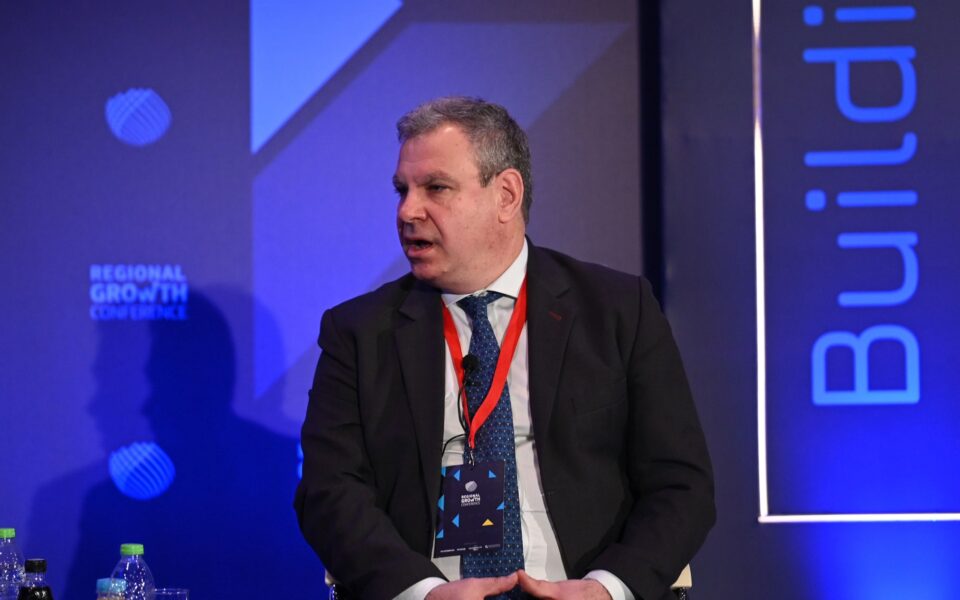IOBE anticipates Greek growth at 2.4%

The Foundation for Economic and Industrial Research (IOBE) sees gross domestic product growing by 2.4% next year, which is lower than the rate provided for in the draft budget (3%), as the Greek economy may grow faster than the other eurozone economies, but is called upon to travel a greater distance in an environment full of challenges and uncertainties.
One day after the governor of the Bank of Greece, Yannis Stournaras, warned of the risks of stagflation in Europe, it was the turn of the director general of IOBE, Nikos Vettas, to ring a similar alarm during the presentation of the report on the Greek economy.
IOBE’s estimate for a growth rate of 2.4% in 2024 (as well as forecasts for 2023) is based on the assumption that consumption will remain positive, but at just 1% compared to a forecast of 1.6% in 2023, with only investments expected to surpass the performance of 2023 and increase by 7.8%.
For 2023, IOBE maintains its estimate of annual growth at 2.4% in real terms, taking into account the slowdown of the European economy, in conditions of high inflation, tighter fiscal and monetary policy, and growing uncertainty.
In terms of growth components, consumption is expected to contribute significantly to economic expansion, with an annual increase of 1.6%, combined with an annual increase in investment of 3% (fixed investment 10%).
Regarding the big “headache” for government, households and businesses, which is none other than inflation, IOBE maintains its forecast for 2023, estimating that it will come to 4.3%, while for 2024 it expects inflation of 2.6%, with the de-escalation also due to an estimated decline in demand. “Inflation comes down in two ways, one bad and one good. The bad thing is the pain it causes buyers and forces them to reduce demand,” said Vettas.
At the same time, he pointed out the need for the implementation of those policies that will strengthen competition, stimulate supply and reduce prices.
He also referred to the number of allowances granted in recent years, which support purchasing power but also, as a consequence, contribute to the very slow decline of inflation.





